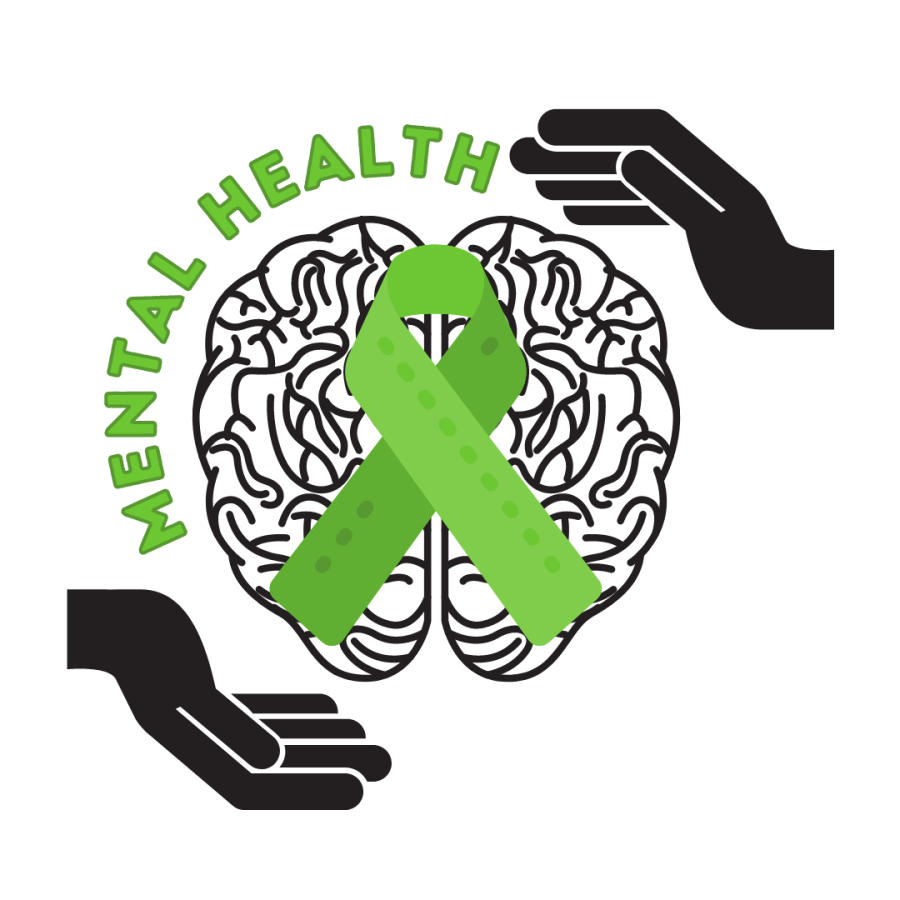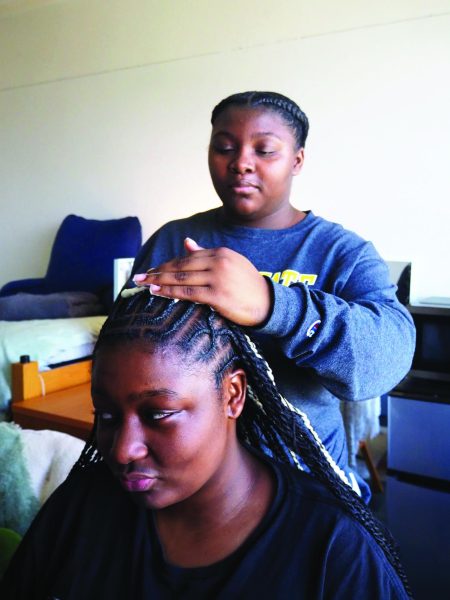Campus Mental Health
Infographic courtesy of Agnes Kurtzhals
College campuses are facing a mental health crisis today in America.
December 1, 2021
America is facing a mental health crisis throughout its college campuses today. It may not seem that way, according to Massachusetts General Hospital’s Clay Center for Young Healthy Minds, because only 25% of college students with a mental health issue seek out help. While seeking out help might not be an option for everyone, maintaining healthy habits could be implemented into anyone’s routine and improve the flow of days to come.
Routine and consistency are important for maintaining good physical and mental health. Adding things to your daily routine to improve mental health can be easy as avoiding self-criticism. Treating yourself with kindness is essential for living a happy life.
“I try to maintain steady routines, especially in the morning and before bed to start and end my day with less stress and/or anxiety,” Ciera Afrank, a licensed student counselor here at WSC, said. “Mindful eating and exercising with joy have recently become greater priorities for me, and my energy and overall wellness have improved greatly.”
Keeping up with physical fitness is a great way to improve mental health. People can use exercise as an outlet for stress. A walk a day keeps the depression away. The University of Michigan posted ten things that students can do for their mental health. Number five on the list is “learn how to deal with stress” and if exercising alone is not giving you what you need it suggests playing with a pet or keeping a journal as a way to sort out thoughts and de-stress. Number five goes on to say that finding the humor in life. Laughter can boost your immune system, ease pain, relax your body and reduce stress.
“I do several things daily for my personal health such as thinking of the funniest thing of the day on my drive home to separate work and home in a lighthearted way,” Jayne Halsey, a licensed student counselor, said. “Others include getting regular sleep, eating healthy more times than not, pick one time a day to have an enjoyable time whether it is for 30 or 60 minutes. I connect with people in my social circle, so I don’t get caught up in my own thoughts or myself; we are all a part of a community.”
Getting enough sleep each night is a way to be kind to yourself. Sleep is a foreign concept for some students whether they are out partying or in studying a lack of sleep is evident. According to number two on the same University of Michigan post about things you can do for your mental health a lack of sleep can be linked to depression rates in college students. Ciera Afrank believes that sleep is something more students should focus on to maintain their own personal health.
“Yes, being in college comes with stereotypes of late nights, running on coffee, and irregular naps between classes, but sleep is a major indicator for mental and physical health,” Afrank said.
While improving your own personal health may be a difficult journey the most difficult part can sometimes be finding the motivation to keep at the new routine. Both of Wayne States Licensed Student Counselors had something to say about ways to stay motivated.
“Break down the big picture and start small. Set realistic goals with specific action steps of how you are going to get there,” Afrank said. “The steps can be minor changes, such as setting reminders, doing affirmations, etc., according to what you want.”
According to Halsey, working together with your support system helps build motivation back up.
“Motivation is improved by reminding ourselves why we matter and need to value ourselves (this doesn’t mean we value others less); we then have more to give to our families, friends, and jobs,” Halsey said. “I think giving mutual support to remind each other of reasons to work on health is a great tool; working out together is a terrific way to show support.”
Both recommended some media that promotes better health. Afrank recommends “The Little Book of Gratitude” by Dr. Robert A. Emmons, “Intuitive Eating: A Revolutionary Anti-Diet Approach” by Evelyn Tribole, “The Mind, Explained” on Netflix, and apps called Moodfit and Happify. Halsey recommends and audiobook called “10% Happier” by Dan Harris, a music playlist that makes you want to sing along, and a feel-good movie like “Guardians of the Galaxy.”
The counseling services on campus can be found in the Student Center in room 103. For an appointment call 402-375-7321 or stop in the office to set up a time.










